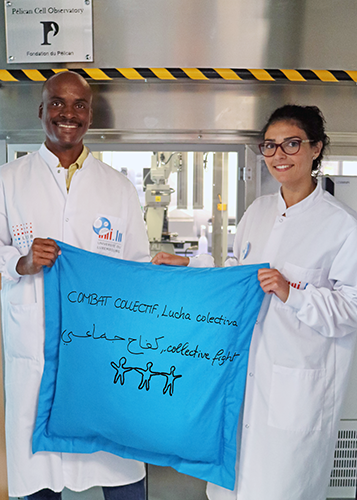|
|
Parkinson's Fighters: Edinson & SihamEdinson: “People sometimes ask if it is hard to do research on Parkinson’s disease. I’d say nothing is really hard as long as there is one key element: passion! And if you have a big societal problem like Parkinson’s at hand that you are trying to solve, how could you not be passionate to crack the puzzle? We want to find out why dopamine-producing nerve cells age faster and eventually die in Parkinson’s disease and we are looking closely into energy production. The dopaminergic cells have very complex extensions, several meters in total. So you can imagine that they need a lot of energy to keep all the biological processes running and communicate well with one another. The latter is also what I look at under the microscope. I use skin cells that people with and without Parkinson’s disease have donated to research and in the lab I can turn them into dopamine-producing nerve cells. Using a robot we can study cells of many people at the same time in the same way and compare the results. On the microscope we make videos of how the cells look like and how they communicate with each other. They are beautiful, don’t you think?....” Siham: "… Then comes the part where we need to get the information out of these large amounts of videos that Edinson is making. This is where my work as a computer scientist starts. I write programs that do this automatically and reliably so that we can compare many different characteristics from different patients and healthy people with each other, and simulate the disease on the computer. Hopefully, once we understand what the differences are in how the diseased cells produce and consume energy, we can develop new medication to fix the problems. This is of course our ultimate goal: to help the people. Coming from Algeria, where genetic Parkinson’s disease is more common among Berber people, I have seen what it means to live a life with Parkinson’s. I’d be thrilled to add a piece to the puzzle to improve people’s lives. This is what I remind myself of every time a complicated experiment tests my patience."
|





